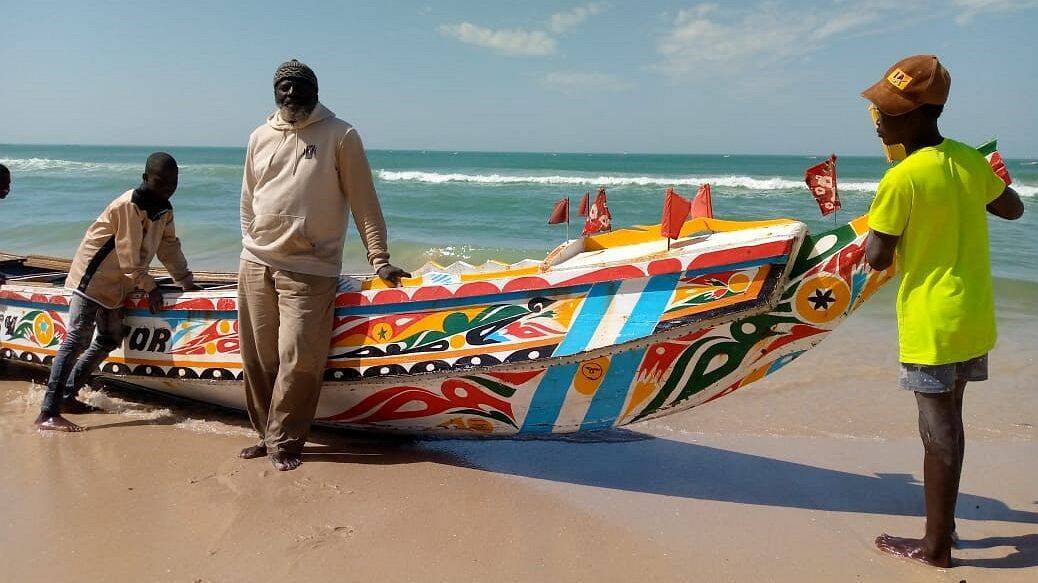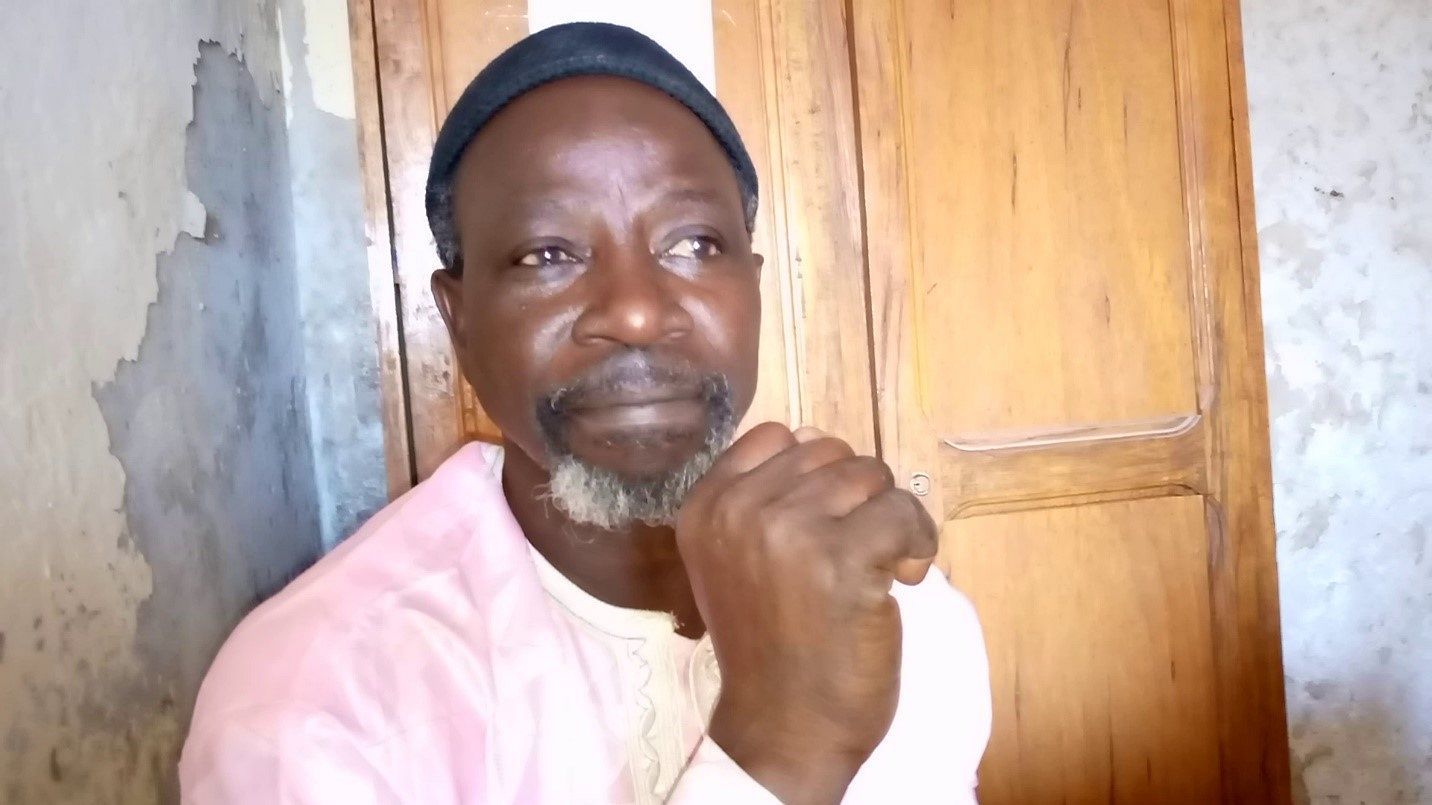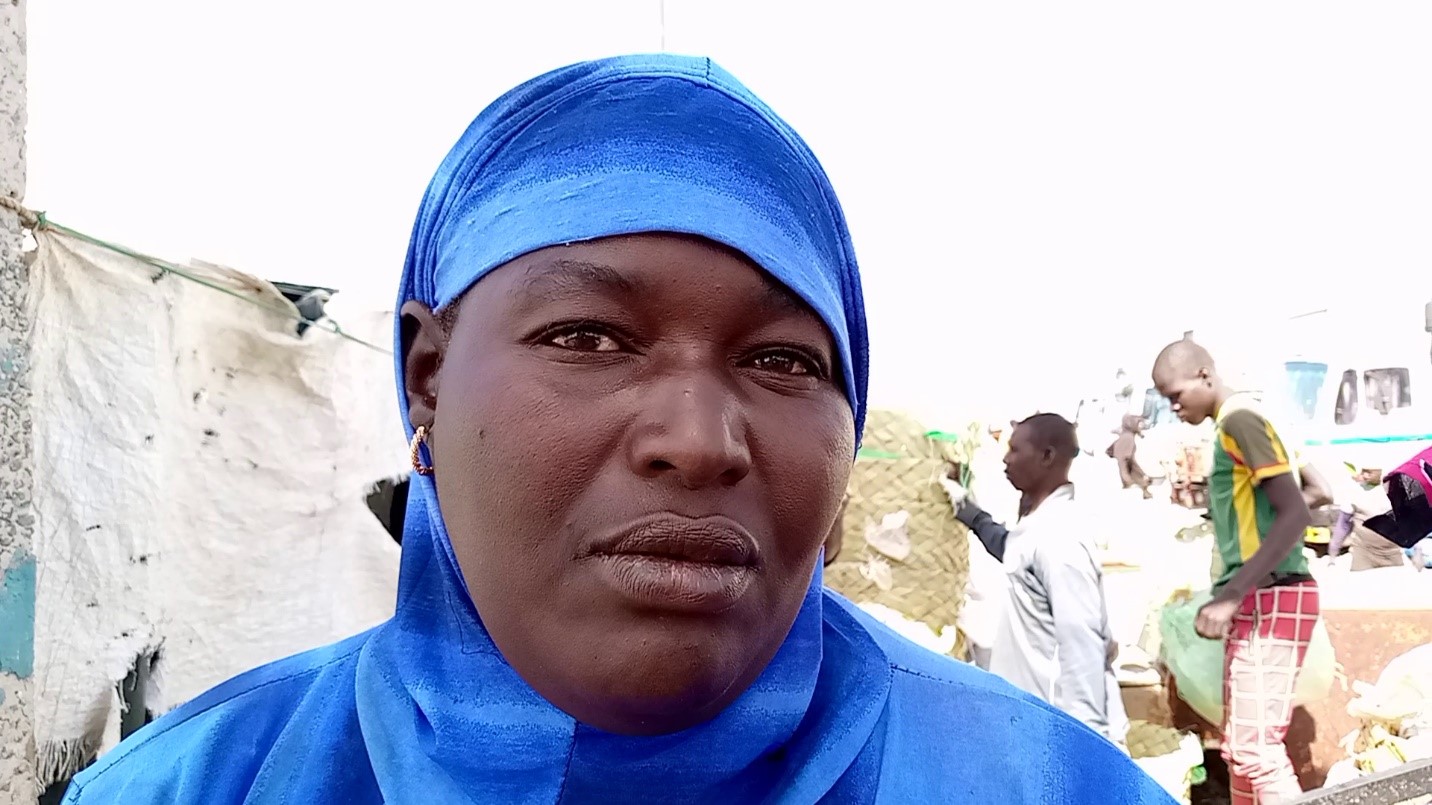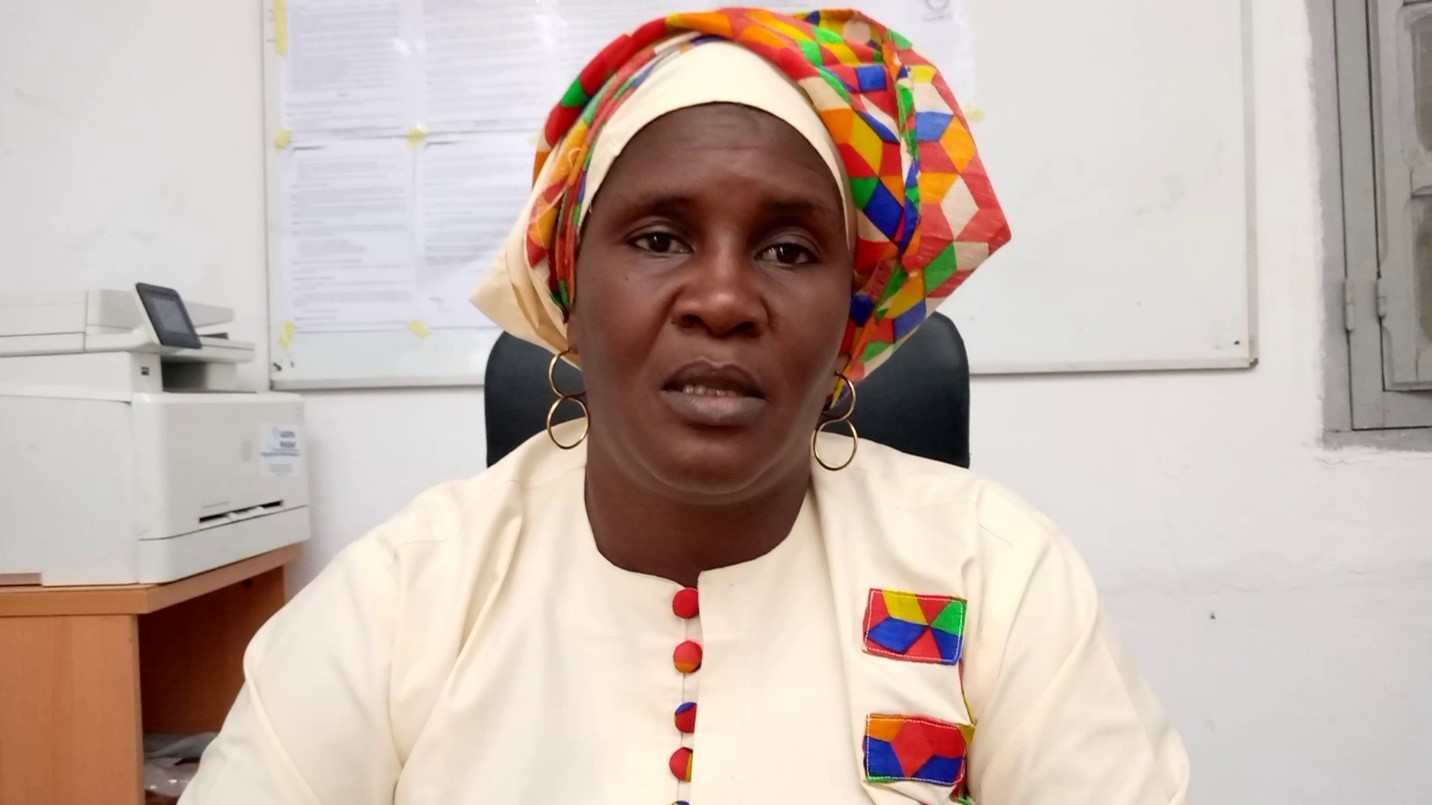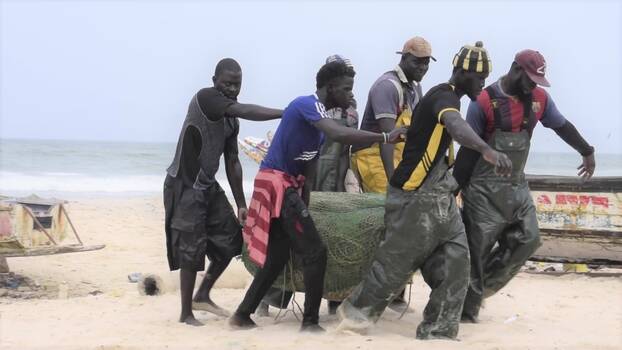
If there is one subject that currently dominates public discussion among the residents of Saint-Louis, the second-largest city in Senegal, it is neither the debate around a possible third term for Senegalese president Macky Sall, nor the environmental catastrophe that threatens the region (which includes advancing coastal erosion, rising sea levels, and changing climatic conditions). Instead, the gas deposits off the coast of the city and the Senegalese state’s intention to exploit them starting in 2023 (in cooperation with British oil and gas company BP) is the main focus of all discussions.
Ibrahima Thiam works on climate change and natural resources at the Rosa Luxemburg Foundation’s West Africa Office in Dakar, Senegal.
Translated by Ryan Eyers and Joseph Keady for Gegensatz Translation Collective.
All across Saint-Louis, the only subject on people’s lips is gas. The rest of the country dreams that oil and gas production will allow Senegal to enter a new era, one that could become an economic turning point for the country.
Off the coast of Saint-Louis, on the Senegalese-Mauritanian border, BP has built facilities to extract gas with the idea that it would be liquefied at a terminal and then sold as liquid natural gas (LNG). Production is supposed to start in 2023, with an initial capacity of around 2.5 million tonnes per year. In the long term, it is supposed to increase to 10 million tonnes per year. Between 2023 and 2025, Senegal projects that its income derived from gas extraction will reach 888 billion CFA francs (around 1.4 billion euro).
Nevertheless, the mood in Saint-Louis is not euphoric, but rather one of concern — the concern of a fishing community that has been fishing in the region for a thousand years. For them, fishing is not merely an economic activity, but also part of their culture: it has a ritualistic, recreational, and social dimension. Fishing is closely connected to the forms of communal living that exist there.
There are particular kinds of solidarity that exist among the fishermen — for example, they always provide fish to those who are retired and can no longer work. A fisherman’s entire life is connected with the catching of fish. Religious ceremonies, meetings, and baptisms are all determined by the fishing calendar. When an old fisherman dies, it is not uncommon for a part of his pirogue, or fishing boat, to be removed and used to mark his grave. More than 20,000 pirogues fish along Senegal’s 700-kilometre coastline, where they compete with around 160 industrial fishing boats.
We spoke with several people affected by recent developments in Saint-Louis and its fishing district Guet N’Dar about the current situation.
We are with Moustapha in a pirogue, a small boat, and have travelled to within 600 metres of the gas platform, where we recorded what he had to say about the gas production:
We are here by the Grande Tortue Ahmeyin (GTA) platform, situated on the border between Senegal and Mauritania, where BP will begin gas production in the first quarter of 2023.
The entire fishing community in the Saint-Louis region is worried. Saint-Louis is the capital of fishing, if you consider the number of pirogues, the number of fish caught, and the different fishing methods that are used.
Since the sixteenth century, the local fishing community has always lived from the catching of fish. Now, a new activity is coming to the area that will compete with fishing. The primary issue is that BP wants to erect its platform right here in Diatara, the area with the highest population of fish.
Our grandfathers, fathers, and we have always fished to keep the country alive.
We wonder why the platform will be erected here in Diatara, when the wells are 125 kilometres away and the gas will be pumped up to 85 kilometres further via pipelines? Why didn’t they choose another location for the building of the platform when this is precisely the reef where the fish live?
Now the fishermen are in an uproar. We who are parents are very apprehensive. We know that nothing will be able to stop our children from fishing around the platform in future. They have no other option, and they have to live. They have to survive.
How can people take bread out of fishermen’s mouths, filling them up with oil instead, without any form of compensation?
Our laws are very clear in this regard. Article 57 of the Petroleum Code [revised in 2019] addresses compensation. So, we are calling for our states to do something. We call on the Senegalese state to begin negotiations between the three parties involved — the fishing organizations, the oil companies, and the state.These negotiations must discuss compensation and figure out how BP can offset the losses incurred even before gas production has begun, if the fishermen will no longer be able to fish in Diatara in future. That would enable the fishermen to adapt to the situation and, if necessary, get better equipment to allow them to travel out to other, potentially more distant fishing locations, in order to be able to earn enough to survive.
For us fishermen, the discovery of gas off Saint-Louis is causing multiple problems. Each year, the fishermen in Saint-Louis spend an estimated 20 billion CFA francs [around 20 million euro] on fuel for their boats.
None of the fishing methods that were used in the past are possible anymore. We have been living with this situation for three years now. But we cannot leave the ocean. If someone were to take your field away from you without compensating you, they would be acting unfairly. It’s not going to work. We need to be prepared for conflict.
The ocean is our sole source of livelihood — it carries all our hopes. We have been fishing on this reef for over 1,150 years. It is our inheritance. Those of us who live in the region are furious about this injustice. They cannot simply prevent us from accessing the ocean, or confiscate our boats and equipment, as the guards on patrol do when we fish near the reef despite the ban. We will not simply take this injustice lying down.
When the first consultations took place, the fishmongers were invited to take part in discussions, but not the fishermen. During French president Emmanuel Macron’s visit to Saint-Louis, he said that the fisheries would not be affected. We demand compensation, and it must be equal to the losses and damages that we are having to deal with. We also demand that everyone in the fishing industry be taken into account.
The Voices of Women
I belong to one of the oldest fishing families in Saint-Louis. Fishing has always been the most important way for the residents of Guet N’Dar to make a living. The Senegalese state believes that gas production off the coast of Saint-Louis is an economic opportunity, but we think the opposite is true. The gas platform on the most important reef in the ocean has already begun claiming its first victims.
The fish species that used to be here, such as the thiof [white grouper] and diaragne [gilt-head sea bream], have become rare, and fishermen have been banned from accessing the area that we call Diatara. If we are no longer permitted to fish in this area, what is the point of getting in our boats at all?
Those who venture towards the Mauritanian coast are often arrested by Mauritanian patrols and have their fishing gear confiscated. So, the main victims are the small pirogues, even though they’re the origin of our fishing practices. The small pirogues are what eventually gave rise to the larger fishing boats. Everything began with them.
The fishing sector is a major source of jobs. People come from all across the country to work in fishing here, even people for whom agriculture is no longer a viable option. The current situation is very concerning, and it is driving our young people to emigrate. The fishermen have been left to their own devices and receive absolutely no support. We have no alternative to fishing.
Fishing is a very old activity around the Langue de Barberie, the peninsula south of Saint-Louis, and constitutes the region’s wealth. We are happy about the discovery of gas deposits, but we are also concerned about our environment and the management of our ecosystem.
We know that gas will only be produced for a limited time period, for 25 to 30 years. Fishing, by contrast, is an enduring, sustainable activity. That is why the fishing industry should not be sacrificed to benefit gas production efforts.
The seismic examinations of the ocean floor have already damaged the ocean. The small pirogues have been badly affected, because the gas platform was built right where they catch their fish. So, the ban on fishing near the platform has a huge impact on our activities.
BP recently complained that pirogues were still fishing near the platform. During the environmental impact assessment, these fishermen requested that wave-breakers be installed to stop fish. That way, they could restrict themselves to fishing in those areas. The first gas is set to be produced in two months, and still nothing has happened.
The estimated number of pirogues in Saint-Louis stands at 5,300, although this figure comes from 2012, when the state suspended pirogue registration. Today, that figure has doubled, because carpenters are continuing to build new pirogues.
Another problem that we have is the small area where fishing takes place. The area that spans from the estuary to the BP plant to the Senegal-Mauritania border is far too small for the number of pirogues that we have. This means that there has been a sharp spike in the migration of fishermen to all other Senegalese waters.
There needs to be discussions between the government and the fishing community in Saint-Louis. We don’t know what is in the contracts and we demand that their contents be made public. It is the state is primarily responsible for this and it must introduce concomitant measures and policies for the communities affected. Otherwise, it will be difficult for BP and local communities to coexist.
There is a lot of talk about compensation, but who is entitled to receive it and who is not? Is it only those who own pirogues? What about seasonal workers?Law No. 2019-04 of 1 February 2019 stipulates how local communities and businesses are to be included in the process of exploiting fossil fuel resources and thereby also profit from them. But will existing small- and medium-sized businesses be able to meet BP’s standards in order to obtain contracts?
Since we are the ones most affected by gas production, we should have priority in terms of the allocation of direct and indirect jobs associated with the project. We need to strengthen the abilities of young project partners and support them in response to demand from companies like BP.
The Role of Women in the Fishing Industry
Women play a very important role in the fishing industry. In Saint-Louis, we have 40 locations dedicated to processing fish products and each location employs at least two hundred women. Because the amount of available raw product is continually shrinking, we process all possible seafood products. Difficulties we encounter include a lack of organization, the lack of hygienic standards, and restricted access to markets.
What’s more, the work is only seasonal. The six-month season from January to June is followed by the rainy season. Women are forced to look for other work opportunities, as we do not have storage capabilities. We would like to build storage facilities, so that we could specialize more and be able to offer better and more varied products for export, both to other countries in Western Africa and even internationally.
